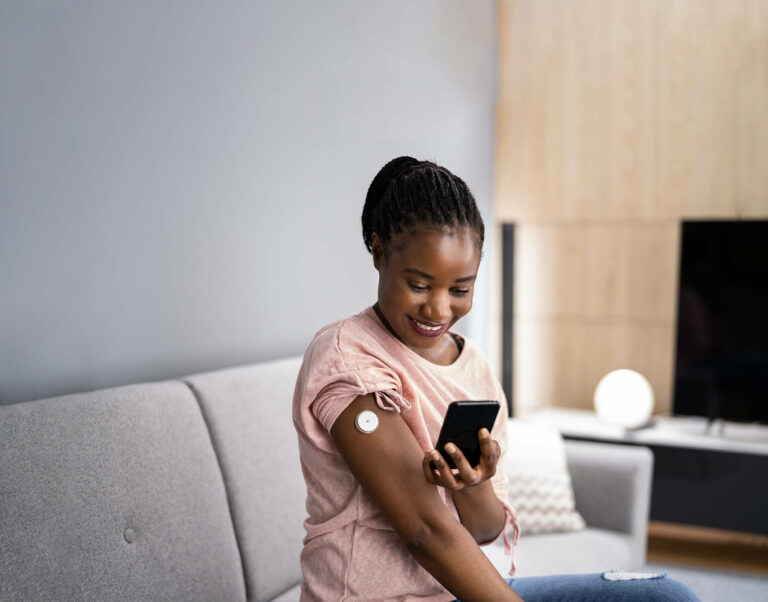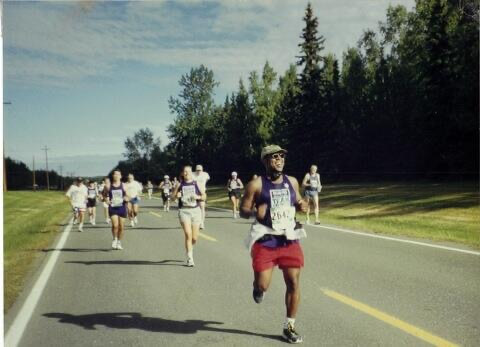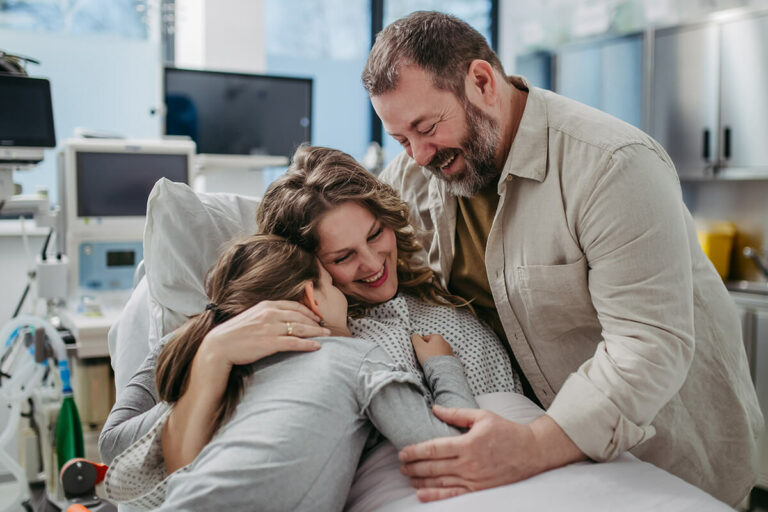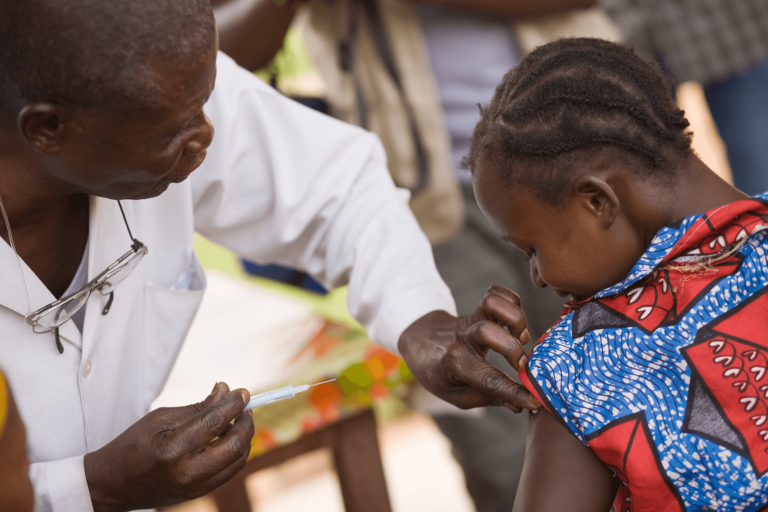4 Things I Learned from Being a Rare Disease Clinical Research Participant
I never expected my life to turn out this way, but I’m so glad it did.
As a rare disease patient, caregiver, and advocate, I spend my days educating and supporting both patients and clinical research professionals to encourage health equity, patient engagement, and patient empowerment. I’m deeply passionate about helping others navigate a rare disease diagnosis and all its highs, lows, and in-betweens, because I lived it.
My Clinical Research Story
We now know that Fabry disease is a rare genetic disorder that causes a buildup of fatty deposits throughout the body, leading to a variety of symptoms from fatigue and rashes to heart attack and stroke, but, back in the 80s and 90s, very little was known about the condition. So little, in fact, that my father’s diagnosis was almost accidental.
He went in for a routine physical exam and the doctor noticed that he had elevated protein in his urine. Instead of dismissing it, the doctor began asking question after question, doing test after test, until they diagnosed him with Fabry disease. Because it’s a genetic condition, the rest of the family went in for tests and my sister and I were diagnosed. At the time, doctors believed Fabry to be asymptomatic in women, so we focused on our dad.
My first introduction into the world of clinical research was trying to get my father into a study. I say “trying” intentionally, because there were very few Fabry trials, and those that were running were located across the country, on the other side of the world, or had limited inclusion/exclusion criteria. But we kept fighting — all the way to the FDA. My sisters and I spoke at an approval hearing for a Fabry drug and, ultimately, got our dad into an open-label extension trial – an incredible win, as these studies are generally limited to patients who participated in the drug’s original trial. But my journey was far from over.
I got married, started having kids, and built a life with my family. But the Fabry symptoms I’d been living with became too much. I needed to be healthy. I needed to be there, be alive, for my kids. So, I started looking for clinical trials I could participate in. After a long and arduous search, I found a trial that was accepting women — as the medical community had finally recognized that women did have Fabry symptoms — but it was in Atlanta, hours away from my family in Pennsylvania. Could I travel to Atlanta if I were accepted into the trial? Could I afford to give up my job? Could someone else step in to be my father’s primary caregiver?
In the end, I was able to do it logistically, financially, and emotionally. I became one of 23 patients in the world to take the drug and one of nine women. I entered the trial as a Phase II participant and stayed through extension after extension for 12 years, through final FDA approval. I grew close with the study sponsor, became more involved behind the scenes, and even had the opportunity to be the voice of the patient at a meeting just days before approval. Being in the clinical trial changed my life, but not because it gave me access to treatment for my rare disease. Being in the trial changed my life because it put me on the path I now walk. My clinical trial experience taught me so much, and I am so grateful for every lesson I learned along the way — because now I get to share them with people who might be feeling as lost or as scared as I was. People like you.
My biggest advice for patients or caregivers considering clinical trial participation? Advocate for yourself, ask questions, find a trusted source, and speak up.

Advocate for Yourself
The Phase II trial put me through the ringer. I would fly to Atlanta, stay in a hotel, and go through test after test, all by myself. One trip, I was so exhausted that I got a migraine. I pushed through the tests, but I came out of the hospital so sick. I somehow drove back to the hotel and, when I got to my room, I dropped my key. I remember crawling around the floor trying to find it, thinking “I can’t do this anymore!” So, I spoke up. I told the sponsor I needed help and they immediately offered to pay for a companion to come with me on my trips. It was as simple as that.
As a clinical research participant, you need to speak up. Advocate for yourself, ask for what you need, and use your voice. It might be scary, but you’re worth it.
Ask Questions Early and Often
When I first started my clinical trial, I had no clue how I was supposed to understand what was in the massive, dense documents I was given to sign. I learned the best solution is to ask. Raise your hand and ask questions before you sign anything. Not because you should be worried about being scammed, but because you need to be informed about your body and your options.
The same applies to the finances of being a clinical trial participant.
I was very fortunate because my sponsor paid for hotels and flights up front. They also had a concierge service that made the bookings for me. However, I did have to put all my meals on my personal credit card, which, after months of cross-country trips, added up quicker than the sponsor could process my reimbursements. These days, many sponsors provide patients with prepaid cards they can use to cover such expenses, but every trial is different. Ask finance-related questions early and often to ensure the arrangement works for your needs and comfort level.
Find a Trusted Source
Clinical trial patients, especially those in rare disease or minority communities, often feel isolated in their experiences. That’s why it’s essential to find a trusted source to whom you can ask questions, get advice, or just talk, such as a pastor, elder, advocate, or another clinical trial patient. Ideally, they should be someone in your community who looks like you, has had similar lived experiences, or is in the same season of life so you can feel understood, safe, and supported.
Caregivers, Speak Up!
I spent years caring for my father, and am now caring for my daughter, who was eventually diagnosed with Fabry’s and participated in a pediatric trial. I can confidently say that caregivers experience clinical trials almost as deeply as the patients. It hits you hard, emotionally and logistically, as you’re taking off work, going to appointments, staying up late, and balancing life just as much as the patient. So, caregivers, speak up! Ask for what you need, ask questions, and share your experiences. Your voice is just as important as the patient’s. You might not be having treatments done or doing tests, but you’re still sacrificing, and you still matter.
A Call to Action
My father lived so much longer than we ever hoped he would. Thanks to the clinical research, he was able to meet and develop relationships with his grandkids, be there for life’s biggest and smallest moments, and experience so much meaning. And thanks to my trial, I was able to participate in my health care in a way I never thought possible. I was empowered, and I now have the privilege of helping to empower others.
Clinical research isn’t perfect, but it’s getting better. With every passing day, it’s becoming more accessible, equitable, and patient led. But it will only continue down this path if everyone, from patients and caregivers to everyone in between, participates in research while asking questions, making connections, and speaking up.
Clinical research changed our lives. I hope it does the same for you.
What’s Next?
If Sabina’s story inspired you, we invite you to take the next step. Explore the resources on our site to learn more about clinical trials or help us spread awareness.






